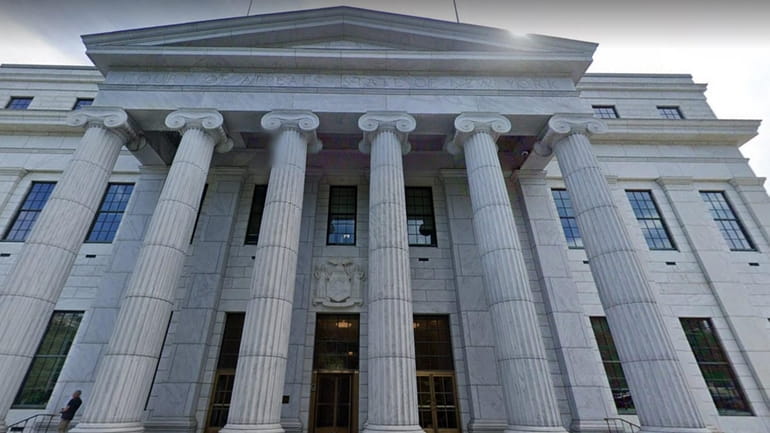NY Court of Appeals hears challenge to abortion insurance coverage

The New York State Court of Appeals building on Eagle Street in Albany. Credit: Google Map
ALBANY — New York’s highest court on Tuesday was the setting for the latest skirmish over abortion rights in a pivotal election year.
Church groups told the Court of Appeals that a regulation requiring insurance policies to cover medically necessary abortions not only violates their religious beliefs, but also doesn’t apply evenly across religious organizations.
In contrast, an attorney for the state contended the insurance mandate mirrors a contraception insurance mandate that’s been upheld by the courts for two decades and that the group’s claims are undermined by the fact none of them sought a religious exemption provided in the regulation.
Though the courtroom battle was thick in legalese, the underlying issue in the case known as Roman Catholic Diocese of Albany v. Vullo centered on abortion access and the obligations on employers and insurance.
New York financial regulators approved the abortion coverage requirement in 2017; the State Legislature codified the rule into law in 2022. It requires employers to offer their workers health insurance that includes coverage for medically necessary abortions.
Technically, the lawsuit by the Catholic Church and other plaintiffs challenges just the regulation. But attorneys for both sides have said a Court of Appeals decision to toss the regulation could lead to overturning the state law.
Tuesday’s oral arguments were seven years in the making.
A state Supreme Court dismissed the lawsuit in 2019, citing the Court of Appeals’ 2006 decision in a case known as Serio, challenging a mandate that insurance policies cover contraceptive drugs and devices. A midlevel court upheld the ruling.
But later, the U.S. Supreme Court vacated that and ordered New York to rehear the case in light of its 2021 decision in Fulton v. Philadelphia — which found the city violated the First Amendment when it declined to renew a foster care contract with a religious agency that refused to place children with same-sex couples.
Relying on the Supreme Court decision, attorneys for the church groups said New York’s regulation should allow religious organizations to self-certify they qualify for exemption. By making them document they serve a religious purpose or serve a population that shares their religious beliefs, the state violates the rights of a society of Catholic nuns who run a nursing home for a general population — which is one of the plaintiffs in the lawsuit.
“The regulation gives decision-makers too much discretion,” said Noel Francisco, attorney for the Roman Catholic Diocese of Albany and other religious groups. “It applies to some religious employers but not other religious employers.”
The seven-judge panel pushed back, noting none of the groups applied for the exemption and, therefore, state regulators hadn’t exercised its decision-making powers. Francisco said the fact that the state has the power is problematic, “regardless of whether they exercise it.”
The Court of Appeals typically takes four to eight weeks to render a decision after hearing oral arguments in a case.
Details on the charges in body-parts case ... Gilgo-related search continues ... Airport travel record ... Upgrading Penn Station area
Details on the charges in body-parts case ... Gilgo-related search continues ... Airport travel record ... Upgrading Penn Station area

